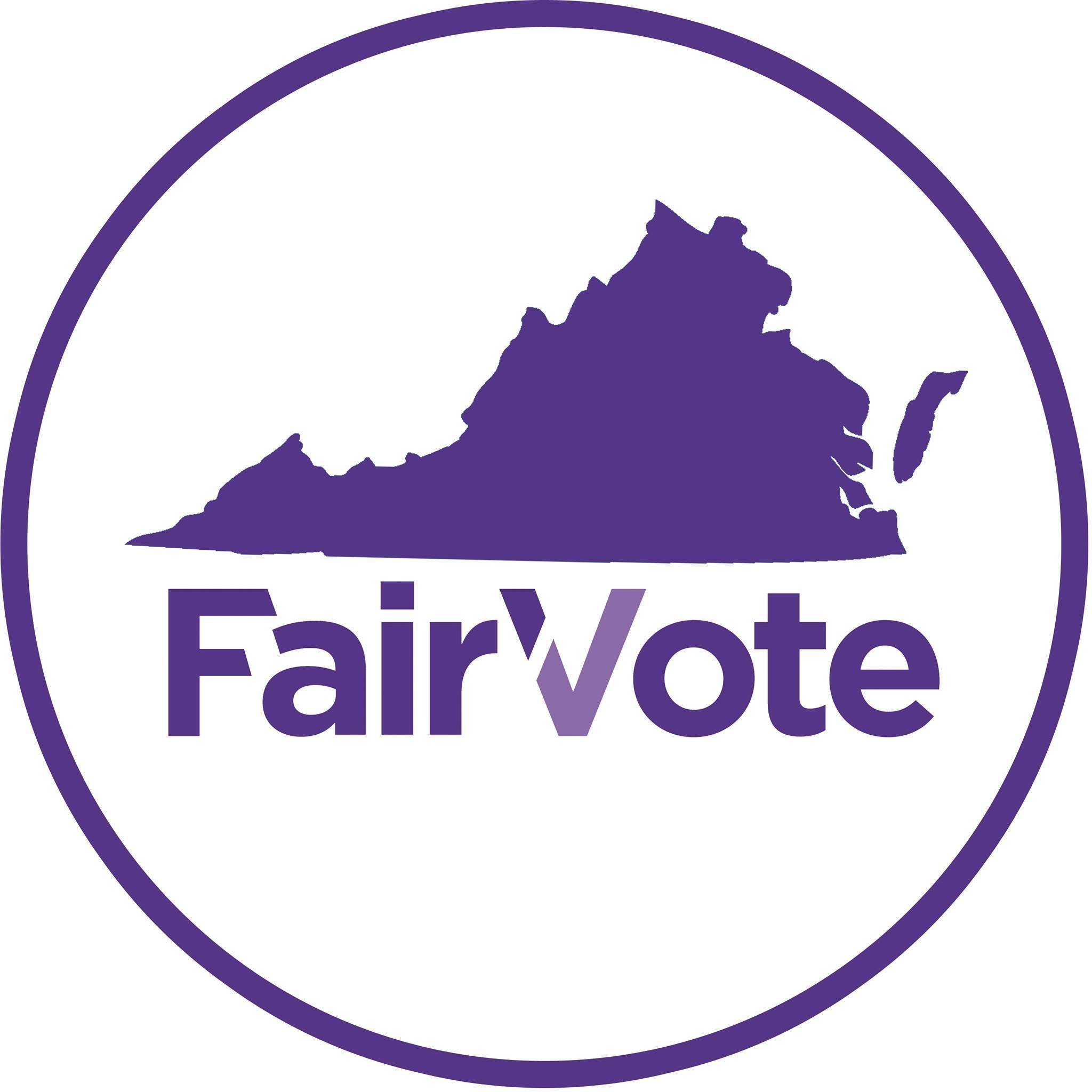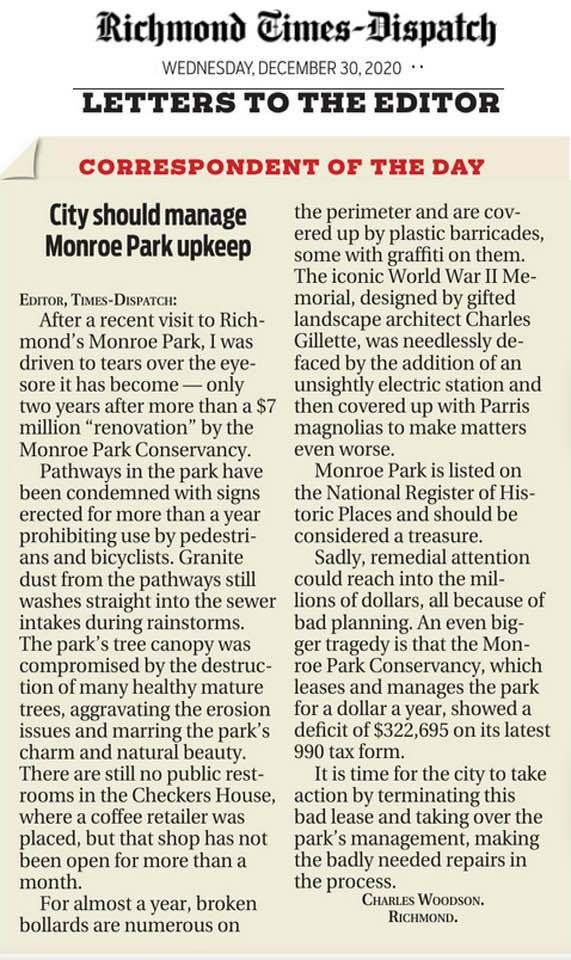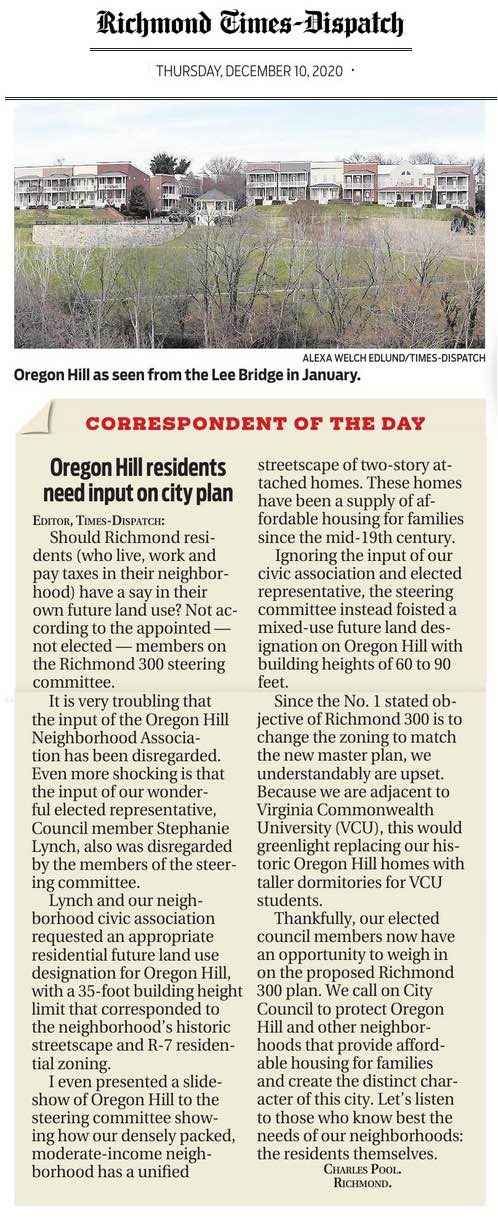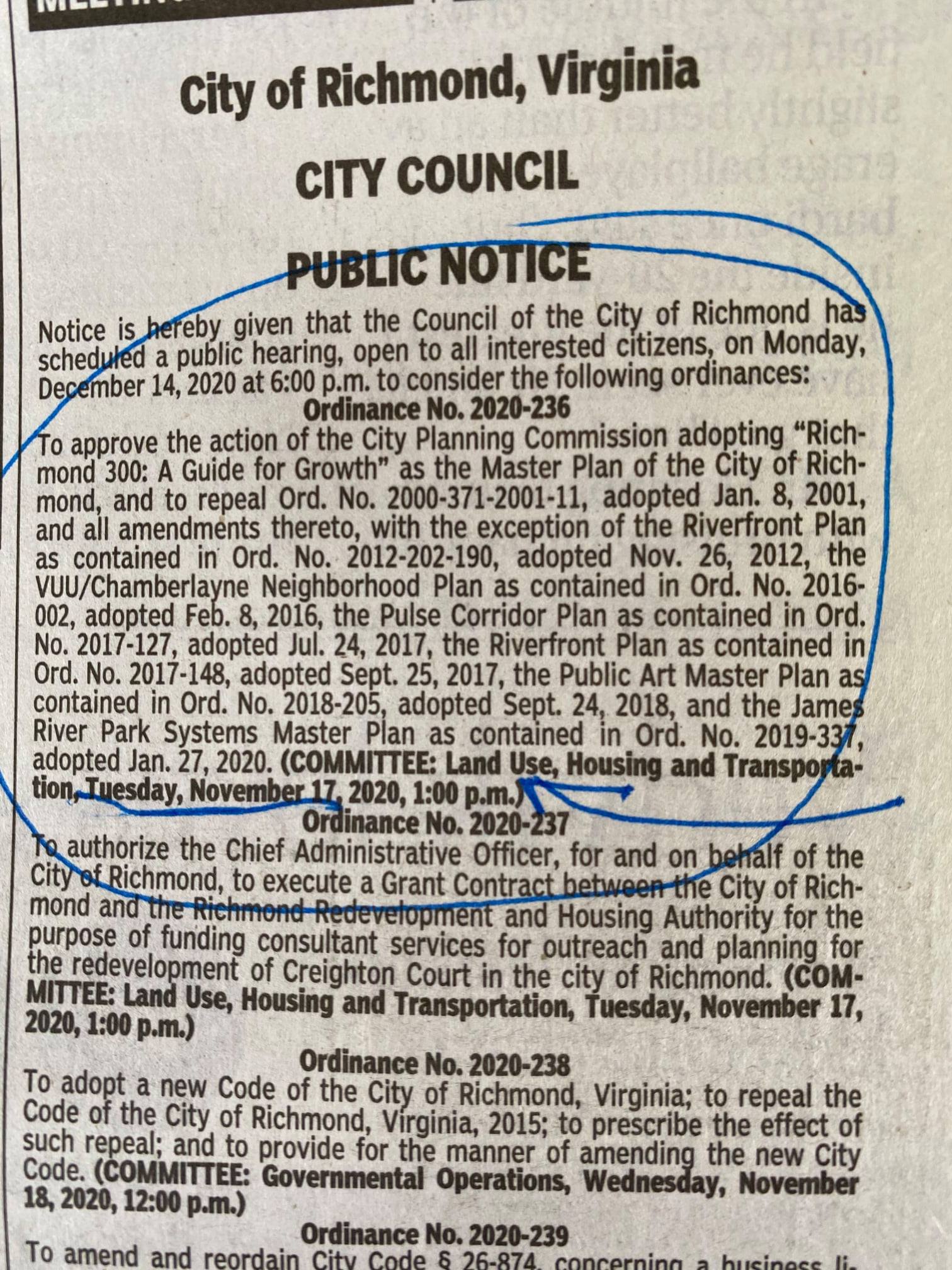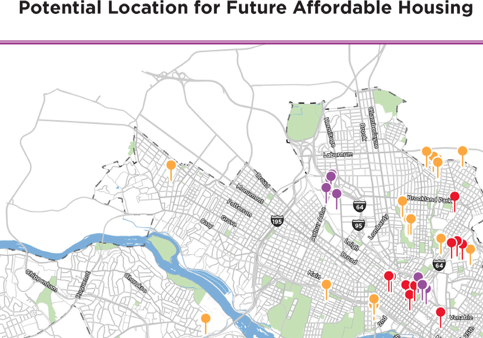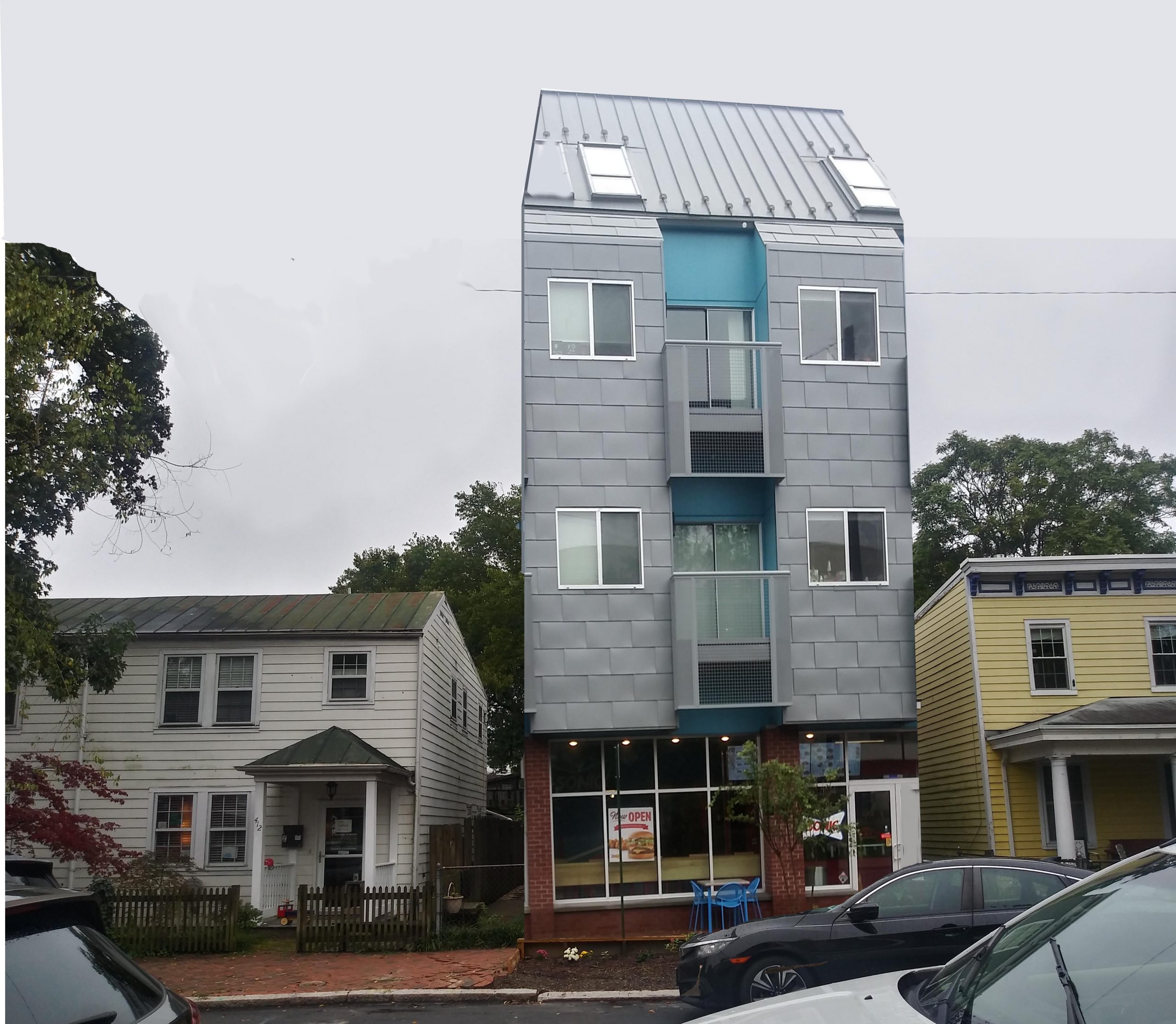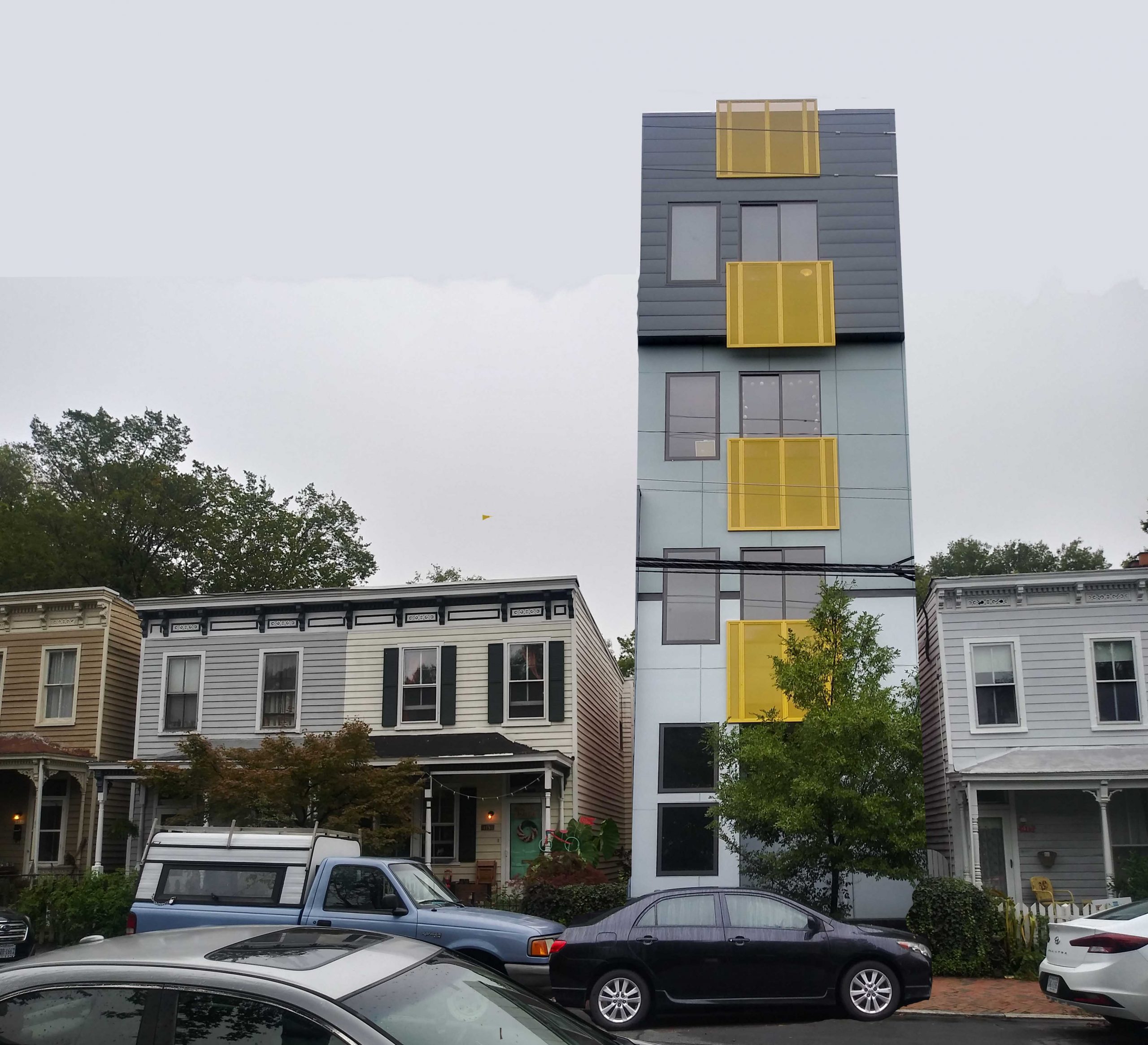Dear Delegate Carr and Councilperson Lynch,
As you both are well aware, the City of Richmond will hopefully be electing a new Mayor in a few short weeks. You both probably also know that, ultimately, candidates vying to be Richmond’s Mayor need to win a plurality of the vote in at least five of the city’s nine city council districts. Should no candidate have achieved that feat on November 3rd – something considered a distinct possibility considering the numerous serious candidates left in the race – a second round vote between the top two city-wide vote earners is to take place (with the same requirement of winning a majority of the city’s districts). In addition to discord, a run-off election could prove very costly financially to the City.
On April 10, 2020, Governor Northam signed HB 1103. This Act amended the Code of Virginia by adding a section numbered 24.2-673.1, relating to using ranked choice voting (RCV) in local elections. The Act stipulates that elections of members of a county board of supervisors or a city council may be conducted by ranked choice voting pursuant to this section. The decision to conduct an election by ranked choice voting shall be made, in consultation with the local electoral board and general registrar. The law shall be enacted within the county or city by a majority vote of the board of supervisors or city council that the office being elected serves (or, this being Richmond, is it the General Assembly?). The Act will go into effect on July 1, 2021.
Unfortunately, the Act also stipulates that any costs incurred by the Department of Elections related to changes in technology that are necessary for the implementation of this Act, including changes to technology for receiving the results of elections conducted pursuant to this Act, shall be charged to the localities exercising the option to proceed with ranked choice voting. On behalf of FairVote Virginia, I respectfully request that you both ask the City of Richmond Registrar to provide Richmond City Council and the Virginia General Assembly with an estimate of the costs associated with the implementation of this Act.
After receiving this estimate, City Council, (or, this being Richmond, is it the General Assembly?) will be in a better position to make a decision regarding the implementation of ranked choice voting in future Richmond local elections.
A couple of things that are also on my mind in regard to this matter:
I am closely watching for the findings of a study required by the General Assembly Budget Amendment HB29, which explores replacing VERIS (Virginia Election and Registration Information System.) If VERIS is replaced, the new system chosen must be compatible with RCV ballots. I am hearing the study completion is on target for October reporting, and since RCV has already passed the legislature and has become an option for all localities in 2021…it will be part of the initial requirements!
“It is the intent of the General Assembly that the Department of Elections release a Request for Information in fiscal year 2020 related to the replacement of the Virginia Election and Registration Information System (VERIS). The Department shall provide an update to the Chairs of House Appropriations Committee and the Senate Finance and Appropriations Committee on the options and potential costs for replacing VERIS on or before September 1, 2020.”
https://budget.lis.virginia.gov/amendment/2020/1/HB29/Introduced/FA/83/1h/
During the pandemic, ranked choice voting has become a necessary alternative to lengthy assembled run off conventions, RCV was used in both Democratic and Republican Party Conventions this year in Virginia. Most notable, in August, to elect the Republican Party of Virginia’s State Chair. In the second round of tabulation Rich Anderson received 62% of the vote.
In VA10 and VA11 districts, the Republican Party conventions selected candidate for House of Representatives by ranked choice voting. Commentary in an article on thebullelephant.com noted that in the 10th District convention, “was a very well run unassembled convention with everything working as it should have. For most of the day, there were no lines at all, with some short wait times in the early morning when Loudoun county was voting. There were 1600 delegates registered and 1240 showed up to vote, an excellent turnout.”
Arlington County Democratic Party used ranked choice voting to endorse candidates for County Supervisor and School Board.
Also, in Arlington County, there is an initiative underway to implement RCV in local elections.
Regardless, I appreciate any information or attention you can give to my humble request for RIchmond.
Sincerely,
Scott Burger
FairVote Virginia board member and 5th District resident
(FairVote Virginia is a non-partisan, non-profit champion of ranked choice voting. Our members cover the entire political spectrum and come together from across the Commonwealth, united by a shared mission to revive real, representative democracy by enacting and implementing ranked choice voting legislation.)
UPDATE:
Thank you very much for your prompt response.
Sincerely,
Scott
On Oct 26, 2020, at 1:15 PM, Betsy Carr – House of Delegates wrote:
Dear Scott,
Thank you for your email. I will forward your request to the Richmond Registrar’s Office. Please keep in mind that since the election is a week away, they may not respond until after their work relating to the election is complete.
HB1103 stipulates that the local governing body (i.e. the City of Richmond’s Council, not the General Assembly) in consultation with the local electoral board and local registrar can decide to implement RCV in their locality.
Additionally, I spoke to House Appropriations staff about the HB29 budget language regarding the report on the replacement of VERIS. Due to COVID-19, budget language was passed that allows for state agencies to defer their reporting in order to prioritize their response to the pandemic. The Department of Elections is one of those agencies that has had to seriously shift their focus in order to ensure that all Virginian voters are able to safely vote. A report is expected around the end of the year.
Please let me know if you have any additional questions or concerns.
Sincerely,
Betsy

